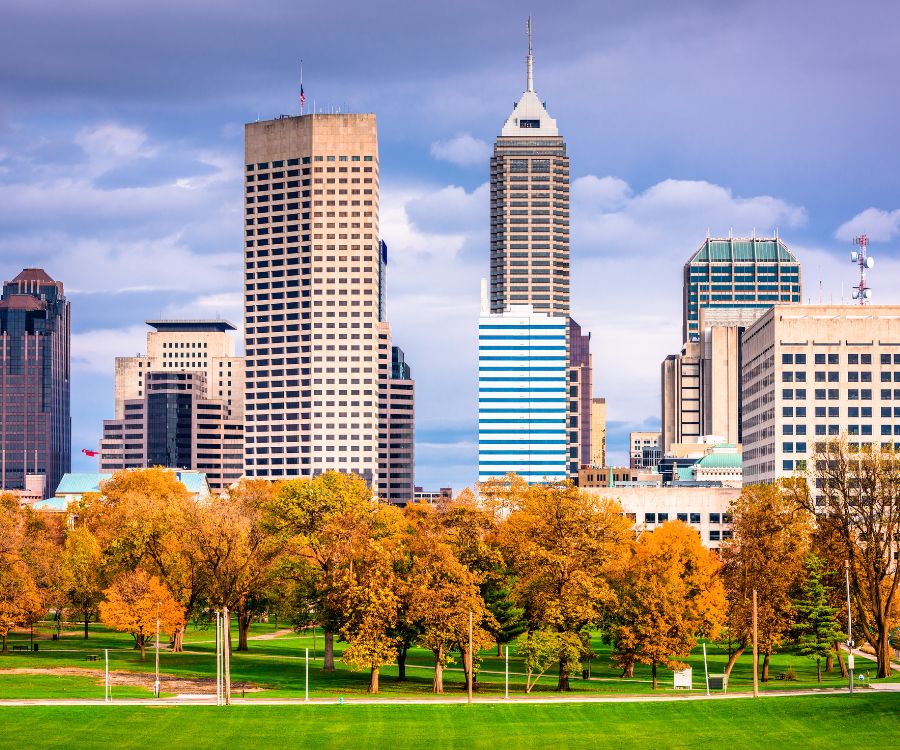The Mind Trust’s Response to IPS’ Rebuilding Stronger Plan
By Brandon Brown, CEO of The Mind Trust
The Mind Trust is proud to enjoy a longstanding and durable partnership with Indianapolis Public Schools (IPS). We deeply appreciate the leadership of IPS Superintendent Dr. Aleesia Johnson, Board President Evan Hawkins, and the Board of School Commissioners. We applaud district leadership for the year of thoughtful and collaborative work that went into creating the Rebuilding Stronger plan, and we look forward to robust community input on the draft plan in the coming weeks.
At The Mind Trust, our mission is to ensure that every Indianapolis student, regardless of background, has access to a great school in pursuit of a day when race and income are no longer predictors of life outcomes. Last year, we commended the IPS Board of School Commissioners for establishing bold academic achievement goals that place a particular emphasis on the academic performance of Black, Latino, and low-income IPS students. It is through these lenses that we share a few initial thoughts on the draft Rebuilding Stronger plan.
In summary, there are components of the plan that we support, as well as components that we think are incomplete or missing. Ultimately, in its current form, we believe the plan does not yet fully address the needs of all IPS students and families. Input from a representative cross-section of the IPS community, especially historically marginalized families, should drive needed changes to the plan prior to board action in November.
Strengths
Operating more efficiently
When IPS campaigned for its successful 2018 operating and capital referendums, district leadership pledged to operate more efficiently in order to continue gaining the public’s trust and drive more resources to the classroom. Various components of this plan make progress toward that promise. IPS should be commended for its willingness to make hard decisions in service of its commitment to operate more efficiently.
Removing single-school attendance zones and proximity boundaries
IPS’ plan to move toward an all-choice model represents a big step in the right direction. The term “neighborhood school” has often been used as a euphemism for educational redlining – the practice of zoning families of color into subpar schools. By moving toward an approach where every family gets to make a choice and magnet schools no longer have proximity boundaries, IPS is turning the page on educational redlining once and for all.
Replicating and expanding innovation schools
We applaud the district for replicating Edison School of the Arts, an arts-focused innovation network school. We are also thrilled that other innovation schools like Global Preparatory Academy and Cold Spring School will significantly expand their middle school programs as part of the plan. All three of these innovation schools are showing promising progress, even while we acknowledge there is still room for improvement.
We are also thrilled that the plan calls for the former Broad Ripple High School to serve as the long-term home for Purdue Polytechnic High School (PPHS) North. Purdue Polytechnic’s two Indianapolis innovation schools are exponentially increasing the number of IPS students who enroll at Purdue University. This long-term partnership between IPS and PPHS’ northside campus is one that the Broad Ripple neighborhood has advocated for many years. It’s yet another example of the power of cross-sector partnerships that benefit our community.
Innovation schools are responsible for growing the district’s enrollment and driving student achievement gains for Black and Latino students, so expanding the reach of existing innovation schools is a wise move. We think even more community-driven opportunities exist to grow the impact of innovation schools within the district.
Opportunities for Improvement
Replicating school models with large racial achievement gaps
The Center for Inquiry and Montessori programs in IPS are popular options for a disproportionate number of white IPS families who live within some of the district’s wealthiest neighborhoods. These schools achieve aggregate academic proficiency rates above district averages; however, they have very large and growing racial achievement disparities and don’t currently serve student bodies that are representative of the district’s racial and socioeconomic demographics. Because of these factors, we worry that an aggressive replication of these programs could widen the district’s racial achievement gaps.
Lack of partnerships with charter operators that have proven results for students of color
At the same time, there are a growing number of high-quality school operators that produce superior results with Black, Latino, and low-income students. Some of these operators – such as Paramount Schools of Excellence and Herron Classical Schools – have plans to add more schools in the coming years. We are concerned that the Rebuilding Stronger plan does not currently identify enough partnership opportunities that would provide more access for IPS students to attend our city’s highest performing public schools by leveraging facility collaborations and the innovation school law. This is especially true in light of the fact that several IPS buildings will no longer house schools after this school year, which presents an opportunity to proactively enter into facility partnerships with our city’s best operators.
Not pursuing this approach will almost certainly mean that IPS will lose enrollment to these growing, high-quality operators in the coming years, which will exacerbate the problems this plan is attempting to solve. Families of color have specifically advocated for this partnership approach, and we urge the district to find ways to partner with high-performing charter operators with proven track records of success.
Looking Forward
Again, we thank Dr. Johnson, President Hawkins, and the IPS Board of School Commissioners for their leadership and partnership. We look forward to hearing from families that are most impacted by the district’s proposed changes about what they would like to see as part of the plan. We are hopeful that IPS leadership will take their input into account as the plan is finalized prior to the vote later this fall. In the meantime, we will continue our efforts to forge partnerships that provide increased educational opportunity for Black, Latino, and low-income students in Indianapolis.

